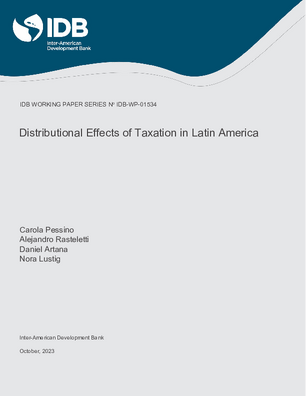Distributional Effects of Taxation in Latin America
Date
Oct 2023
This chapter analyzes the incidence on income distribution by a comprehensive array of direct and indirect taxes in ten Latin American countries circa 2018. The study finds that although there is a significant heterogeneity, the redistributive impact is equalizing for direct taxes and unequalizing for indirect taxes. Overall, redistribution through taxes, without accounting for spending effects and interactions, is slightly equalizing for some countries and unequalizing for others, but the burden on the poor is high and even higher than on the rich. This is mainly a consequence of the high share of indirect taxes in the tax structures, and of low personal income tax collection and coverage. The inclusion of the redistributive effect of the corporate income tax contributes to improve redistribution and accounts for better comparison with the redistributive impact in more developed countries, where dividends are taxed heavily with personal income taxes rather than corporate income taxes as in Latin America. High levels of evasion and informality make payroll taxes more regressive in integrated labor markets with high informality, but make indirect taxes less regressive, since the poor pay little or no indirect taxes on some of their purchases.




